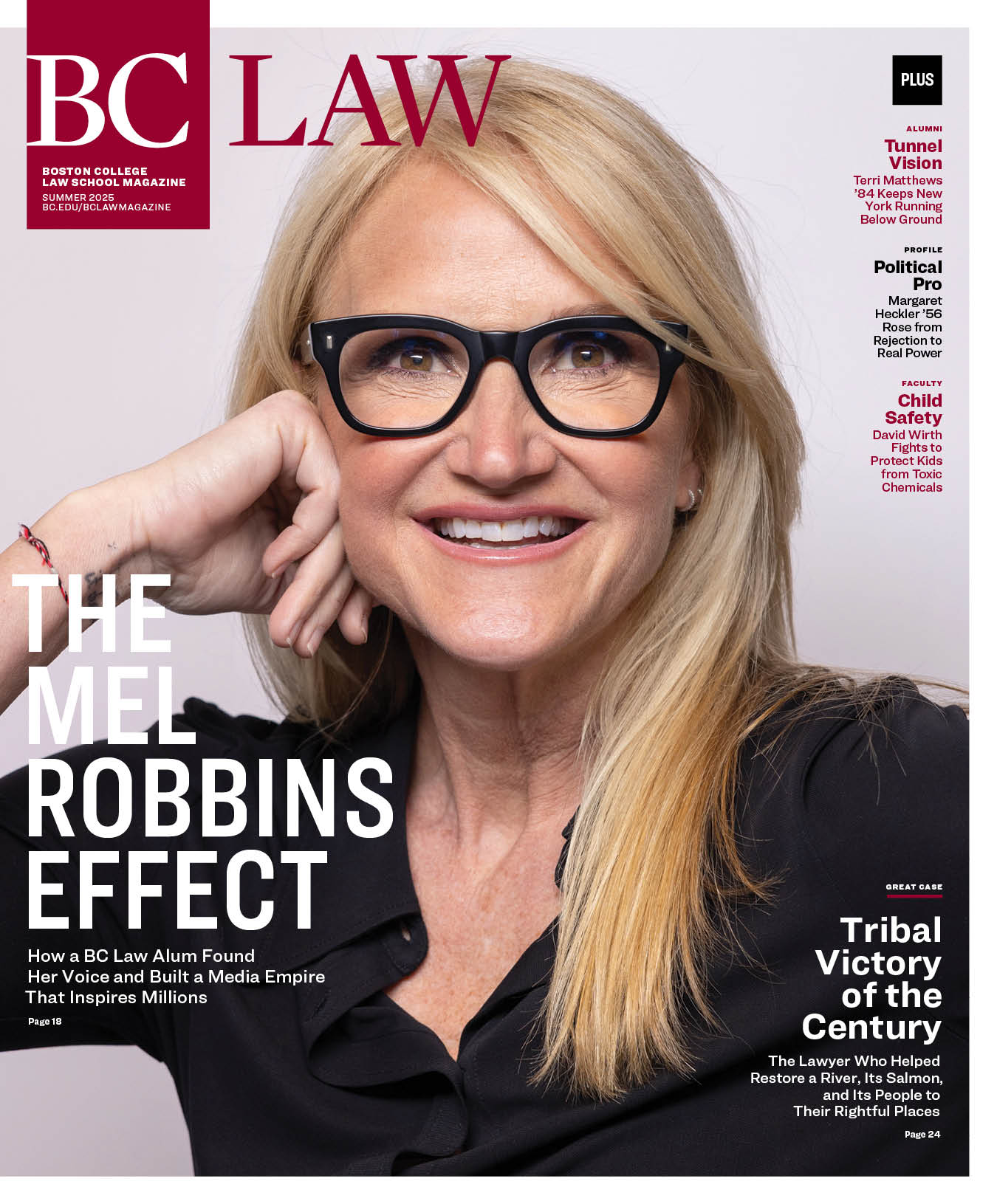Richard Cordray, former Ohio attorney general and the inaugural director of the Consumer Financial Protection Bureau, came to BC Law earlier this year to discuss the history and uncertain future of the CFPB. His experience at the state level during the devastation of the 2008 financial crisis that robbed millions nationwide of their jobs and homes, informed his effort to ensure that companies providing consumer financial products would be federally regulated. He shared further insights into the push-pull of federalism in his conversation with Dean Lienau.
OL: Consumer well-being and sentiment fundamentally shape politics, economics, and law. Why are consumer protections so important?
RC: The big, core consumer finance products that affect tens of millions of families across the country are mortgages, credit cards, student loans, and auto loans. The shape of them, in terms of fees, interest charges, and other things, can vary quickly and dramatically. Therefore, it’s important for an agency that regulates in the area to be very nimble and plugged into exactly what’s happening on the ground. And there may be new financial products and services developing that aren’t yet widespread—and if widespread, could be dangerous or harmful to the public. You need to be aware of them, and on the forefront, even before they become well known or have wide effects.
OL: What was the impetus for the creation of the Consumer Financial Protection Bureau?
RC: One of the major reasons the CFPB was created was the meltdown in the mortgage market that had blown up the economy [in 2008]. Millions of people lost their jobs, millions of people lost their homes, trillions of dollars of wealth evaporated. The 2010 Dodd-Frank Act that created the CFPB also legislated considerable changes to the mortgage market and the laws governing the market; the CFPB was given significant authority to draw up new rules in the mortgage market.
We did that. It was the major focus of our rulemaking for the first two or three years. This huge industry had never been regulated at the federal level in this respect before, and the mortgage market became stable and safe.
OL: It seems to me that one big question is the relationship between humans and the financial system—how does the financial system support human flourishing, and when are humans treated like inputs into the financial system? How do you think about this?
RC: That difference in perspective is vast—in terms of: are you protecting the financial companies, are you protecting consumers? Are there ways to do both? Certainly, there are. I always like to say that of the tens of thousands of financial companies—hundreds of thousands—most are good actors that try to build a business model that is stable and enduring. And that means a long-term relationship with their customers and treating them well. Then there are others that have a more short-term perspective—if they can take advantage of a consumer and get away with violating the law, they will try. Those are the ones that an entity like the CFPB is set up to stop.
“Of the hundreds of thousands of financial companies, most are good actors that try to build a business model that is stable and enduring. Then there are others that … if they can take advantage of a consumer and get away with violating the law, they will try.”
Former director of the Consumer Financial Protection Bureau Richard Cordray
OL: As a former attorney general and state representative in Ohio, you understand rulemaking and law enforcement at the state level. How do you see the balance of state and federal authority in coming years?
RC: States have certain authority, and they sometimes try to expand their authority and do more. Federal government has certain authority, and sometimes tries to do more and sometimes less. An oddity of the new administration is that it seems to be highly active, but often at trying to do less—so that’s kind of the head scratcher. But we will continue to have the push-pull of federalism… and we have a bedrock of state-local government in this country that is so firm. We often miss that the federal government is a smaller entity on top of that; it gets most of the headlines now, but there’s an awful lot that goes on at the state and local level.
OL: I’m curious about the extent to which you think the potential benefits of crisis for some people are so high, in terms of the capacity to make money and accrue political power, that this is a fundamentally different time?
RC: If you look back at the second half of the 19th century, the period of the so-called robber barons, they had enormous influence. Much of the economy was unfettered, unchecked by any restrictions, and you had large monopolies developing. The effects were very one-sided. And then there was a move afoot by Republicans in the White House—like Teddy Roosevelt, a child of privilege himself—to rein them in. We seem to be venturing into an era somewhat like that, where billionaires have a seat at the table and ordinary people are crowded out. There will continue to be an ebb and flow, but it’s a real concern because I think it will come at the expense of average Americans—whether they recognize it quickly or not.




